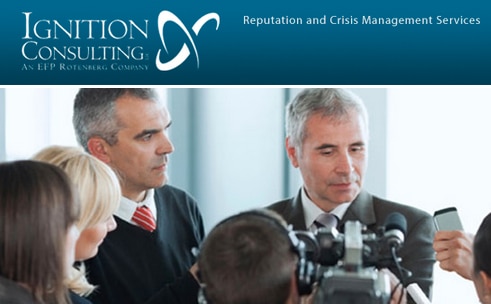In a newsletter to clients titled “Defending Your Company Against an Activist Attack,” Randal Simonetti from the consulting firm EFP Rotenberg, opines that in order to successfully combat an attack by an environmental group you must, “first consider the driving motive that supports the attacker’s existence.”
According to Simonetti that driving motivation is money. “Funding is a primary driver of any activist organization’s behaviour,” writes Simonetti.
To be sure, any non-profit organization must pay some attention to money to keep the lights on and pay decent(ish) wages. But as a former director at the environmental group Greenpeace, I can tell you that activists don’t occupy a logging company’s offices, or lie down in front of a coal train, or march in the streets of New York for money. They do it because they genuinely believe in standing up for their principles and what they believe is right for the human race and the planet.
To counter these supposed money grubbing activists and their campaigns-for-dollars, Randal Simonetti suggests that companies under attack look to find other companies who “operate in a similar fashion” and point them out. I know my mom would probably scold Simonetti on this point and ask him, “If everyone else wants to jump off a bridge, does that mean you have to as well?”
Pointing out that others are just as bad as you, does not excuse your behaviour. Even my 8 year-old knows that.
Simonetti ends with this sage advice (insert sarcastic tone and air quotes here):
“Finally, prepare a cogent defence that indicates you have been aware of the issue for sometime and have been working to positively impact the situation. Communicate your strategy and demonstrate that your attacker is using old news and is out of touch with the reality of the situation.”
I don’t know what to think about this actually. In my experience, if in fact the company is aware of the issue and has been working to positively impact the situation, they are likely not going to find themselves the subject of an activist campaign. You would be surprised how many companies do not end up the target of an activist campaign because they decided to actually sit down and talk through mutual issues of concern with environmental groups (even with Greenpeace).
But if Simonetti is suggesting that a company make it up, then that has to be the singular worst piece of crisis communications advice I have ever heard. Making up a story (again, something even my 8-year old knows is a bad idea) might take the heat off at first, but when the company is outed by either the media or the activist group, they will go from being evil, to evil liars.
What Simonetti forgets in all this, is that maybe the activists are right. Maybe the company is doing bad things that are ruining the planet.
By assuming from the word go that the company is right and that activists are only in it for the money, Simonetti sets up a path that ends in ruin for both his client and for the environmental advocates who want to see positive change.
It creates a confrontation, instead of dialogue — a log jam before either party has even had the chance to consider the other’s point of view.
It sets up a scenario where nobody wins.
Which, I guess if you are in the business of crisis communications, is a pretty lucrative situation to find yourself in.
Subscribe to our newsletter
Stay up to date with DeSmog news and alerts






